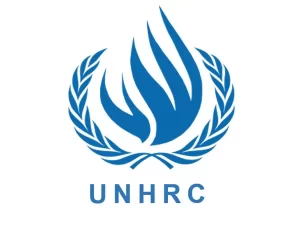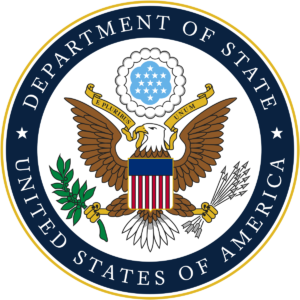Have you or your family experienced human rights violations? With thousands of Oromos experiencing human rights abuses daily, we need YOUR help to ensure the international community responds to the suffering of the Oromo people.
One of the best ways you can make a difference is by submitting information on human rights violations against the Oromo to official bodies. The United Nations and the United States Department of State are two such bodies that have issued calls for submissions from individuals about human rights violations.
It is only when Oromos raise their voice that the international community will hear our cries for justice.
#OROMOSPEAKUP
Right now, there are two ways that you can submit. Here’s how:

The United Nations International Commission of Human Rights Experts in Ethiopia
What is it?
In December 2021, the UN Human Rights Council passed a resolution forming the International Commission of Human Rights Experts in Ethiopia (ICHREE). The ICHREE was tasked with investigating human rights violations that had occurred since November 3, 2020 (when the Tigray war began), and called on individuals, groups, and organizations to submit allegations of human rights violations to them.
Since the ICHREE’s mandate was renewed on October 7, the commission has reissued its call for submissions from individuals, groups, and organizations regarding violations of human rights. The deadline to submit reports of violations is December 31, 2022. Respondents are asked to upload the following submission sheet to the Commission’s secure cloud file transfer system.
Who can submit:
Any individual who has been a victim of an alleged human rights violation that was committed on or after November 3, 2020. OR a relative or legal representative of a victim (parent/legal guarding in the case of a child).
How to submit:
1. Head to the UN Office of the High Commissioner for Human Rights webpage.
Submissions can include the following three things:
- Alleged violations and abuses of international human rights law, international humanitarian law, and international refugee law in Ethiopia committed since 3 November 2020 by all parties to the conflict, including the possible gender dimensions of such violations and abuses;
- Identification of those responsible;
- Recommendations on transitional justice, including accountability, reconciliation and healing.
2. You will need to fill out this SHEET.
*Submissions can be made in English, Afaan Oromoo, Amharic, or Tigrinya.
Tips:
- Try to fill in as much information as you can, but if you can’t answer all the questions, that’s okay.
- Make sure to fill in the INFORMED CONSENT section. This allows you to select whether you want your information shared WITH personally identifiable information (i.e. your name) or WITHOUT personally identifiable information. If you have any security concerns, it’s always better to select WITHOUT personally identifiable information.
3. Once the document has been filled out as best you can, you will need to upload it to the SECURE CLOUD. You can also attach other supporting documents at this step.

U.S Department of State Human Rights Reporting Gateway
What is it?
On September 30, 2022, the US State Department’s Bureau of Democracy, Human Rights, and Labor launched the Human Rights Reporting Gateway. The gateway allows individuals and organizations the opportunity to submit reports of gross human rights violations.
This gateway was launched in order to help the State Department implement the Leahy Law, which prohibits the U.S. government from “using funds for assistance to units of foreign security forces where there is credible information implicating that unit in the commission of gross violations of human rights.” The State Department will be collecting these reports on an ongoing basis.
How to submit:
1. Head to the Human Rights Reporting Gateway. Click SUBMIT REPORT.
Submissions must be focused on the following types of gross human rights violations committed by foreign security forces (military, paramilitary, or law enforcement agencies):
- Extrajudicial killings
- Forced disappearances
- Torture
- Rape by security forces
- Other forms of cruel, inhumane, degrading treatment or punishment may also be considered gross violations of human rights.
2. You will need to set up an online account to proceed with your submission. Once you have created an account you will be able to return to the Reporting Gateway to continue a submission or start a new one.
3. Follow the prompts of the Report Form. Unlike with the UN submission, you do not need to download and fill out a form. Instead, you can submit directly via the portal.
4. Once done, click Submit Report!
We’ve put together this guide to help make the process of submitting as simple as possible. But we know it isn’t an easy task. If you have any issues along the way, make sure to get in touch with our friendly staff at info@ollaa.org.
OLLAA is an umbrella organization that works in collaboration with dozens of Oromo communities around the world.

